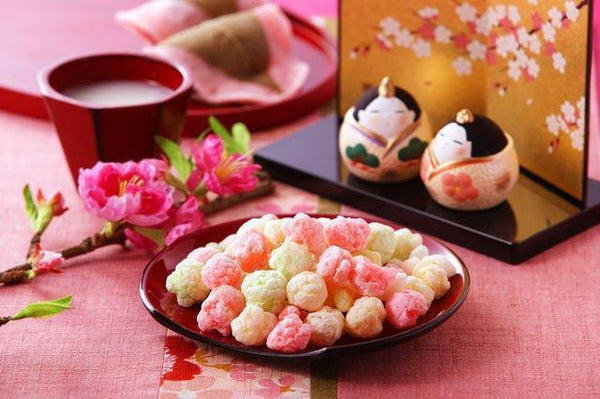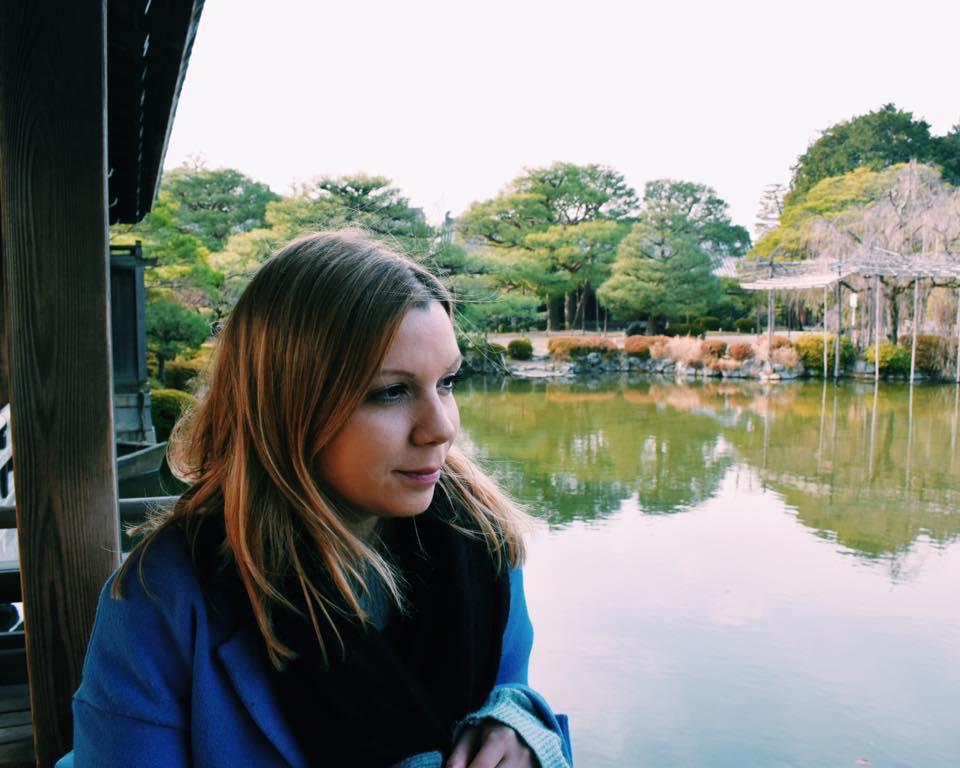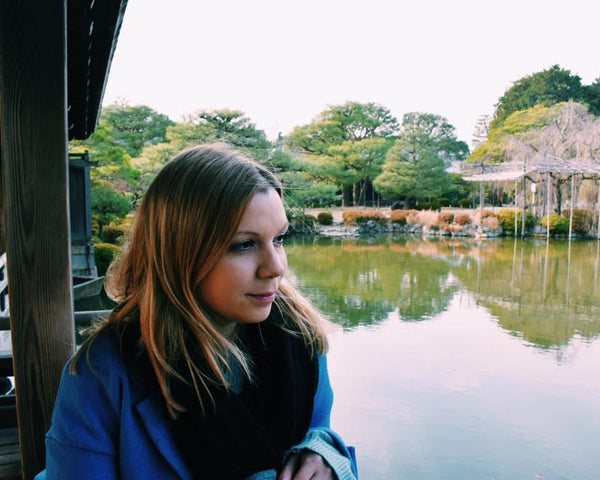
Jump to:
Japanese snacks are delicious and unique, from traditional treats like manju, senbei, and dorayaki, to iconic modern snacks like Pocky and matcha flavored Kit Kats, check out our recommendations of the best Japanese snacks – both modern and traditional!
Top 12 Traditional Japanese Snacks
Anpan

Part of Japan’s unique bread culture, Anpan are sweet rolls traditionally filled with red bean paste, although occasionally other fillings are used instead like white beans or chestnut. The history of anpan can be traced back to Japan’s Meiji period (1868-1912), when an out of work samurai called Yasube Kimura started a bakery in Tokyo’s Ginza area and began selling anapan. The bakery is still open to this day so be sure to stop by if you ever visit Tokyo!
Mochi

Mochi is a type of Japanese rice cake made of flour called mochigome, which is very chewy and sticky to eat. Many kinds of traditional Japanese sweets or wagashi are made from mochi such as daifuku, a round mochi with sweet fillings such as red bean paste, white bean paste, or strawberries. Mochi is made by pounding rice and is traditionally eaten over the New Year period in Japan.
Dango

A popular kind of wagashi, dango are also Japanese dumplings made from rice flour, however the method for making them is different to mochi. One of the most popular types of dango are called mitarashi dango, three to five round dumplings on skewers covered in a sweet soy sauce glaze. You can find them throughout Japan in supermarkets and convenience stores.
Matcha sweets

Matcha tea is one of the most popular flavor of Japanese sweets and desserts and you can find it used in many Japanese desserts including cakes, puddings, ice cream, and mochi. It is also used in baked goods such as cookies, muffins, brownies, and even pancakes. The bitterness of matcha provides a good balance when paired with sweet tasting foods. If you're curious about Matcha sweets, you can learn everything you need to know about them in this post.
Senbei (Rice Crackers)

Two of the most popular types of rice crackers in Japan are senbei and okaki. Senbei can be sweet or savory in taste, and popular flavors include soy sauce senbei, nori senbei flavored with Japanese seaweed, salted senbei, and chili pepper senbei. Sweet flavors include sarame senbei coated in sugar granules and sato senbei dusted in powdered sugar.
Okaki rice crackers are slightly different from senbei. They are a crunchy snack food made using sweet rice flour and are usually smaller and puffier than senbei rice crackers. Usually eaten as a bar snack when drinking beer, they can also be found in a variety of flavors from shrimp to soy sauce.
Arare

Another kind of popular rice cracker, arare are a smaller in size than senbei and okaki and have an airy and crunchy texture. Like okaki, they are made from mochi rice. They come in different shapes and sizes, in a variety of flavors both savory and sweet, and are often served at events such as tea ceremonies.
There are several different kinds of arare available to purchase in Japan, they are also traditionally sold and given as gifts during the annual Hina Matsuri festival, also known as Girls Day. Common flavors include salt and soy sauce, or arare wrapped in nori (seaweed).
Arare are a popular snack in Hawaii, where they were first introduced by Japanese immigrants in the early 1900s. In Hawaii arare are available to buy in cans and are also called mochi crunch or kakimochi, where they are often mixed with popcorn to create a popular snack.
Karinto

Karinto is a popular sweet Japanese snack food made from wheat flour which is deep fried and traditionally covered in brown sugar. In addition to the original brown sugar karinto, other variations available to purchase include flavors such as honey, chocolate, and sweet potato.
The origins of karinto are not entirely known but it is believed they could have been around in Japan since the Nara period (710-794). We do know that they became particularly popular centuries later during Japan’s Edo period.
In Japan, karinto are so popular you can even find specialist karinto stores, such as Nishiki Horin in Tokyo’s Solamachi shopping complex next to the Tokyo Skytree building. The store specilaizes in unusual karinto flavors like yuzu, coffee, and burdock root, as well as seasonal versions including sakura (cherry blossom) flavor during springtime.
Manju

Originally imported from China and introduced to Japan in the 1300s, manju are light fluffy buns usually filled with red bean paste that can be baked or steamed. They are made from wheat flour and brown sugar, and aside from red bean paste, other popular fillings include matcha or white bean paste.
Melon Pan

Despite the name, these sweet buns do not usually contain melon as an ingredient but resemble a cantaloupe melon in their appearance. The bun dough is sweet and consists of a crisp outer layer with a soft fluffy interior. Melon pan fillings can vary and popular flavors include custard, sweet bean paste, and even chocolate.
Dorayaki

Dorayaki is a small pancake-like cake that consists of two round castella sponges with a sweet filling in the middle, usually red bean paste. There are many variations on this traditional Japanese dish. Some people eat dorayaki with ice cream or green tea ice cream. There are different flavors of red bean paste as well as other fillings, such as sweetened chestnuts, sweet potato, or chocolate.
Taiyaki

Taiyaki is a small fish-shaped snack with a sweet filling inside and is a popular Japanese street food often sold at festivals throughout Japan. The name taiyaki comes from the word ‘tai’, which is Japanese for seabream and the shape of the cake, and ‘yaki’ which means baked. Kind of a mix between a waffle and a cake, popular taiyaki fillings include anko (red bean paste), custard, matcha, and chocolate.
Dagashi

Japanese dagashi are nostalgic low-priced candies aimed at kids and are usually priced between 10 yen and 100 yen each. They are easily recognized by their colorful packaging displaying cute mascots, making them more appealing to children. Typical examples of popular dagashi sweets include ramune soda flavored candy, Cheeto or cheese puff like snacks, corn puffs, milk-flavored candies, caramel cubes, and Big Katsu, a kind of breaded fish snack.
Top 12 Best Modern Japanese Snacks
Pocky

Pocky are crunchy biscuit sticks coated in chocolate and have remained one of Japan’s most popular snack foods since they were first introduced to consumers in the 1960s by the Glico corporation. As well as the original chocolate flavor, other variations include strawberry, banana, cookies and cream, and green tea. The clever design of the Pocky stick features a unique biscuit handle which can be used to pick up the biscuit without getting covered in chocolate. Pocky are so popular in Japan that there is even a Pocky day – celebrated on November 11 each year!
If you are a lover of savory snacks, Glico also offers a savory snack similar to Pocky known as Pretz. Pretz are a similar concept as Pocky, but they are not coated in chocolate. Instead, they are tossed with savory seasoning blends such as salad, tomato, sweet potato and more.
Japanese Kit Kats

Whilst milk chocolate Kit Kats are easily available to purchase in many countries, in Japan, more than 300 varieties of Kit Kat have been created to make unique regional and seasonal chocolate bars. Unusual Kit Kat flavors with a Japanese twist include sake, matcha, and yuzu. In Japan, Kit Kats are often purchased on trips as a popular ‘omiyage’ item: souvenirs given to friends and co-workers that showcase regional specialties or flavors.
Meiji Milk Chocolate

Meiji is one of Japan’s leading chocolate manufacturers that produce a range of popular products including Melty Kiss and Kinoko no Yama. The company has been making chocolate since 1926 and now sell more than 20 different chocolate brands. The Meiji Milk Chocolate bars are one of the company’s original products and is sold as both a classic chocolate bar and as individually wrapped pieces. Meiji chocolate is smooth and creamy tasting, with key ingredients to include Madagascan vanilla and ethically sourced cacao beans from Ghana.
Tokyo Banana

Tokyo Banana are cream filled cakes sold in Tokyo and one of Japan’s most popular souvenir items. These light and fluffy steamed sponge cakes are filled with a banana custard cream made from banana puree and have a soft texture. They are the official souvenir of Tokyo, and in addition to the original version, you can also purchase other variations in the Tokyo area from honey flavor to Tokyo Banana Kit Kats. If you ever visit Tokyo, you can also find a long line of people waiting to purchase Tokyo Banana cakes in the airport upon departure!
Onigiri Senbei

Onigiri Senbei are a take on the traditional classic Japanese senbei. These modern senbei snacks have an adorable rice ball shape and are flavored with soy sauce. In addition, the nori seaweed strips are sprinkled onto the rice crackers to add to their onigiri appeal.
What also gives onigiri senbei a modern spin is that they have a crunchy exterior and a soft interior. Once you take a bite of delicious onigiri senbei, you might not be able to stop!
Black Thunder

Black Thunder bars are handy pocket-sized chocolate snacks that are filled with pieces of chocolate biscuits as well as chocolate coated rice puffs. These chocolate bars are made by the Yuraku Confectionery Company and can be found in virtually every convenience store in Japan. Aside from the original chocolate flavor, you can also find other flavors like matcha and a version which features pieces of melted French butter inside.
Wasabi snacks

Wasabi is a popular snack flavor in Japan and there are many types of treats you can try if you are a fan of this spicy condiment. One of the best-selling wasabi snacks are wasabi peas, which are roasted green peas covered in a wasabi coating to create a hot and crunchy tasting product. Other popular kinds of wasabi snacks you can try include wasabi flavored potato chips, rice crackers, wasabi seaweed snacks, and even wasabi flavored Kit Kats!
Karl

Karl Cheese Puffs are an iconic light and cheesy puffed corn snack from Meiji. In fact, this Japanese snack has been a huge hit ever since it launched in 1968. When Meiji decided to make Karl, their first hurdle was to find the ingredient that can make a fluffy and soft-melting puff. They used potato, green peas, and rice but all ended in vain because the puffs made of these didn’t plump up otherwise plumped too much. However, when they tried corn, they successfully made the puffs they pursued.
Interestingly, this snack also fascinates oversea consumers and has become a fan-favorite at Japanese Taste. Karl has a delightfully airy texture and comes in a variety of different flavors. However, the richy cheesy flavor (due to their special blend of 6 cheeses used) that instantly melts in your mouth when you take a bite is by far the most popular!
Hello Panda cookies

These cute and fun biscuits manufactured by Meiji are another of Japan’s popular snack foods that like Pocky, has been exported globally in recent years. The Meiji Hello Panda cookies were first released in Japan in the late 1970s and are easily recognized on store shelves for their hexagonal shaped packaging featuring cartoon pandas. The small and hollow shortbread biscuits come in a range of fillings to include chocolate, strawberry, vanilla, and green tea.
Calbee Potato Sticks

Calbee Jagariko potato sticks are crunchy potato chips shaped like sticks and sold in cup packaging similar to instant noodles. Some of the most popular flavors include Hokkaido Butter - flavored with high-quality Japanese butter from Hokkaido, salad flavor with ingredients such as carrots and parsley, and a cheese version flavored with cheddar and camembert cheese. More unusual variations include soy sauce, beef steak, and seaweed salt with sesame oil.
Melty Kiss

Another popular snack from the Meiji group, these cube-shaped individually wrapped chocolates were launched in 1992 during the winter season. The snack is supposed to represent winter by creating chocolate as smooth as snow. A premium chocolate product coated in cocoa powder, Melty Kiss are available to purchase in milk chocolate, dark chocolate, strawberry, and matcha.
Kaki no tane

Kaki no tane are a kind of small rice cracker made from mochi rice whose name means ‘persimmon seed’ in English due to their orange seed-like appearance. Their traditional spicy soy sauce flavor is salty and spicy in taste, making them a popular snack to eat whilst drinking beer. Kaki no tane are available to purchase in a variety of flavors like wasabi and spicy pepper and they are also often sold in a mixture with peanuts called kakipi. One of the most popular manufacturers of kaki no tane in Japan is Kameda Seika, who specialize in making rice snacks.


52 comments
Hi Dale, thank you for leaving a comment on our article! While you can check your local Japanese or Asian grocery store for Japanese milk cookies and crackers, you can find the best selection right here at Japanese Taste. We also recommend checking out our cookie article where we tried and ranked all of the best Japanese cookies: https://japanesetaste.com/blogs/japanese-taste-blog/the-15-best-japanese-cookies-you-need-to-try
Japanese Taste,
I’ve been looking for Japanese Milk Cookies/Crackers are there any way to get them in the U.S.A.?
Dale Hudgins,
Hi Usagiii, thank you for your comment! We’re glad our article could help you figure out some delicious snacks to buy. :)
Japanese Taste,
Thanks so much, this helped me figure out what snacks to buy for my party!
Usagiii,
Hi Dale, thank you for leaving a comment on our article! While you can check your local Japanese or Asian grocery store for Japanese milk cookies and crackers, you can find the best selection right here at Japanese Taste. We also recommend checking out our cookie article where we tried and ranked all of the best Japanese cookies: https://japanesetaste.com/blogs/japanese-taste-blog/the-15-best-japanese-cookies-you-need-to-try
Japanese Taste,
I’ve been looking for Japanese Milk Cookies/Crackers are there any way to get them in the U.S.A.?
Dale Hudgins,